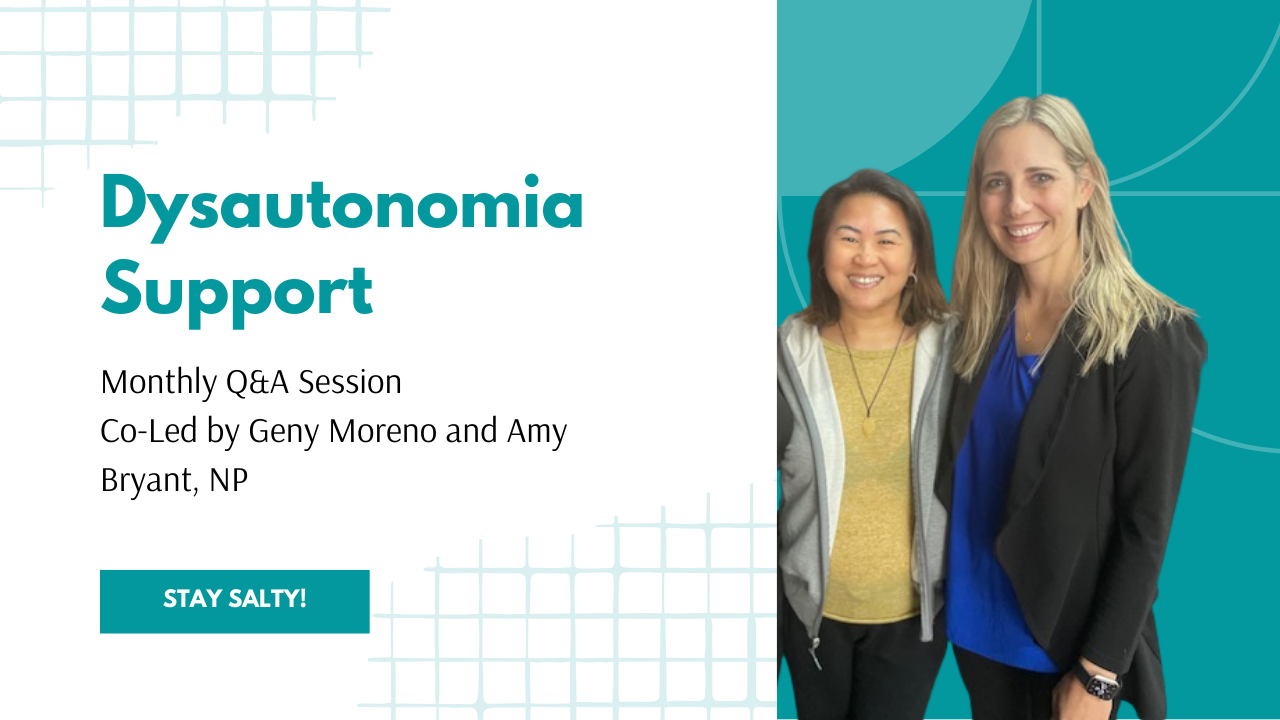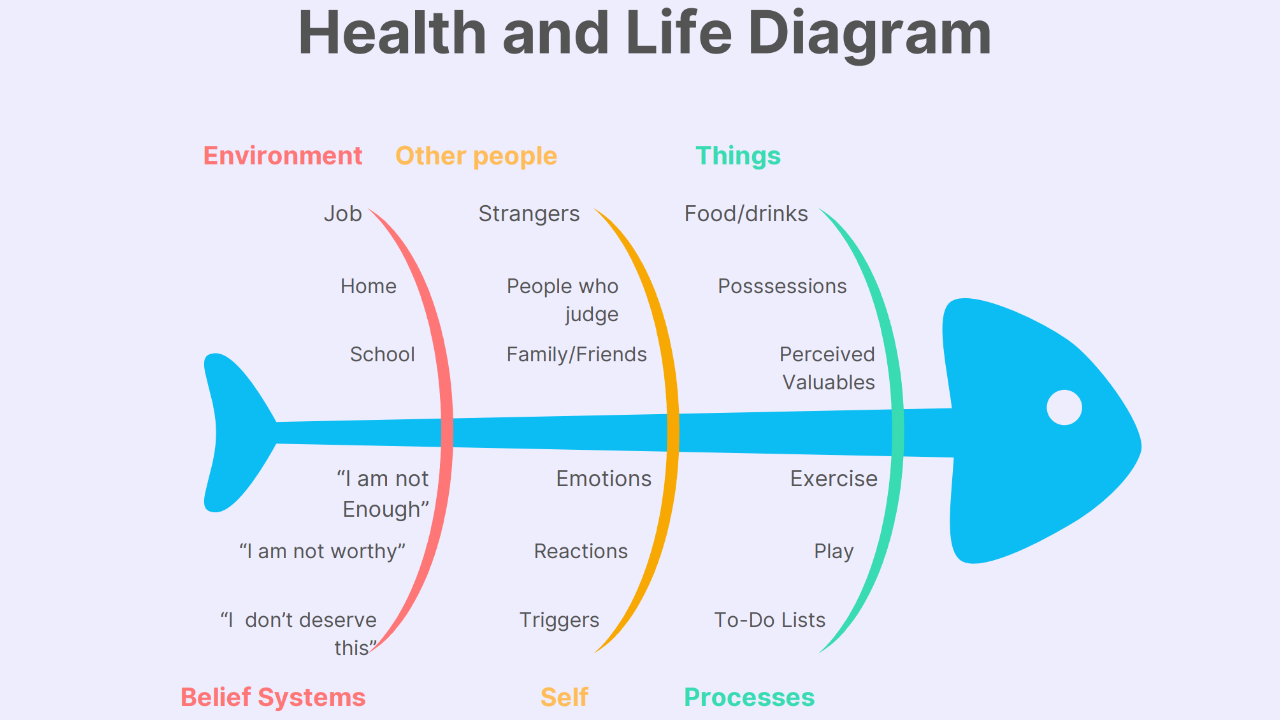Blog
Understanding the Hidden Connections: How MCAS, Hypermobility, and Your Nervous System Work Together

Insights from Our Recent Educational Group Visit, Hypermobile Groups, with Dr. Cheng Ruan - Every other Tuesday
At Texas Center For Lifestyle Medicine, we believe that true healing happens when patients understand their bodies and feel supported by a community of peers who share similar experiences. Our educational group visit programs embody this philosophy, creating spaces where knowledge meets connection and where patients become active participants in their health journey.
Our recent Hypermobile group visit exemplified this approach beautifully. Led by Dr. Cheng Ruan, the session explored the intricate relationships between Mast Cell Activation Syndrome (MCAS), hypermobility, and nervous system function. What emerged was not just medical information, but a deeper understanding of how these conditions interconnect in ways that many patients—and even some healthcare providers—may not fully grasp.
The Many Names, One Root Cause
One of the most enlightening moments of the sess
...Mind-Body Skills for Transforming Trauma: 8 Week Program

At Texas Center for Lifestyle Medicine, we often hear patients say, "I don't think what I experienced was really trauma" or "Other people have been through so much worse." If this sounds familiar, you're not alone—and you're not wrong to seek healing, regardless of how your experiences compare to others.
The Reality of "Big T" and "Little t" Trauma
When we talk about trauma in healthcare, we recognize two important categories that can both significantly impact your well-being:
"Big T" Trauma
These are the experiences most people readily identify as traumatic:
- Major accidents, injuries, or medical emergencies
- Significant losses or life-changing events
- Natural disasters or violent incidents
- Experiences that fundamentally shifted how you see yourself or the world
"Little t" Trauma
These experiences are often minimized but can be equally impactful:
- Chronic stress from difficult relationships or work environments
- Childhood experiences of feeling consistently unseen, un ...
Sound Bath Healing: A Journey into Deep Restoration with Jill Economakos this Month

Discover the transformative power of sound therapy and join us for a special healing experience at Texas Center for Lifestyle Medicine
In our fast-paced world, finding moments of true rest and restoration has become increasingly challenging. Our nervous systems are constantly activated, leaving us feeling depleted, anxious, and disconnected from our inner wisdom. At Texas Center for Lifestyle Medicine, we believe in addressing wellness from every angle—and that includes the profound healing power of tools that connect our minds to our bodies.
We're excited to announce a special opportunity for our community to experience this ancient healing modality firsthand. On August 20th from 1:30 PM to 3:00 PM, Jill Economakos, Founder of MANNA Pilates, will be joining us for an immersive Sound Bath Healing Experience. Click here to register.
What Exactly is a Sound Bath?
Despite its name, a sound bath doesn't involve water. Instead, it's a deeply relaxing and meditative experience
...Introducing Monthly, Provider-Led, Q&A Sessions for Our Dysautonomia & POTS Community

Living with dysautonomia and POTS brings unique challenges that can feel overwhelming and isolating. Finding the right support, getting your specific questions answered, and connecting with others who truly understand your experience isn't always easy. That's why we're thrilled to announce a new monthly resource designed specifically for our community - expert-led Q&A sessions where your questions and experiences take center stage.
Your Group Facilitators
We've brought together two exceptional practitioners who understand the complexities of dysautonomia and POTS from both clinical and mind-body perspectives.
Geny Moreno, Mind-Body Medicine Practitioner
Geny brings expertise in integrative approaches to managing complex conditions like dysautonomia. With a deep understanding of the connection between physical symptoms and mental wellness, Geny recognizes the unique challenges you face. Her mind-body medicine approach offers valuable insights into managing symptoms through compreh...
The Cycle of Awareness and Emotional Regulation

At the Texas Center for Lifestyle Medicine, we believe that a profound understanding of your body's needs is the cornerstone of a healthy and balanced lifestyle. While awareness is the initial step in this journey, it is through understanding and emotional regulation that you achieve changes in your day to day and lifestyle. Let’s dive into how moving from awareness to understanding can enhance emotional regulation and improve your overall wellbeing.
From Awareness to Understanding
Many individuals begin their health journeys by becoming aware of their emotions, stressors, or triggers affecting their mental and physical health. Awareness is crucial, but it's the deeper understanding that turns awareness into actionable insights. When you truly comprehend what's happening inside and outside your mind and body, you can effectively communicate your experiences and create strategies to support your wellbeing.
The Importance of Emotional Regulation
Emotional regulation involves using ...
Unlock Your Inner Balance: Discovering Your CODE/AURA for a Healthier You - Dr. Cheng Ruan

At the Texas Center for Lifestyle Medicine, we believe true well-being means more than just not being sick. It's about understanding yourself, handling your feelings well, and building strong, good relationships that make life better. This idea is central to our work, helping us guide people to achieve overall health.
My sister, Dr. Diana Ruan, and I created the CODE/AURA Profile with this goal in mind. This special system is a complete guide to help people understand their inner thoughts and how they interact with the world. We first made it to help professionals in stressful jobs, especially in healthcare, where burnout is common. But we quickly saw that it could help everyone.
We found that the ideas and practices in the CODE/AURA Profile were very useful for anyone wanting to improve their emotional skills, become stronger, and live a more balanced, happy, and meaningful life. This system, first made to help healthcare workers deal with burnout, has become a valuable tool for an...
Enhancing Emotional Intelligence and Mindfulness

At Texas Center for Lifestyle Medicine, we're committed to empowering individuals through innovative approaches to health and wellness. One such approach is our group visit program, where we delve into the intricacies of the healing journey and support each other in managing life's challenges.
Understanding the Code and Aura: A New Framework for Emotional Intelligence
In our recent group visit, we explored a new framework for emotional intelligence and emotional wellness,, designed to help you identify and understand your subconscious archetypes and emotional responses. This framework consists of two vital components: the "Code" and the "Aura."
-
Code: The Code represents four archetypes of human consciousness: Commander, Organizer, Diplomat, and Examiner (CODE). Understanding your dominant archetype can aid in how you interact with others and perceive the world.
-
Aura: The Aura quantifies your emotional intelligence in various situations, based on Awareness, Understanding,
...
Exploring the Role of Co-Regulation, Relationships, and Somatic Release in Holistic Health

At Texas Center for Lifestyle Medicine, we recently hosted an insightful podcast-style discussion that delved into the profound connections between trauma, physical health, and brain health. This narrative explores the journey of a patient who experienced a remarkable transformation after attending a mind-body trauma release class. By focusing on holistic healing techniques and supportive community practices, this individual was able to reconnect with their body and find newfound vitality.
Understanding the Mind-Body Connection Dr. Brian Plante, a naturopathic physician at the Amen Clinics, shared his expertise on the importance of addressing the whole person to promote brain health and overall wellness. He emphasized the role of trauma in disrupting normal stress cycles and how unresolved emotional issues can manifest physically. Dr. Plante explained that when emotions are suppressed, the sympathetic nervous system goes into overdrive, keeping the body in a constant state of aler
...The Dance of Healing: Finding Balance Between Solitude and Connection

A Mindful Monday Reflection from Texas Center for Lifestyle Medicine
In our journey toward wellness, we often encounter moments that feel like what mystics have called the "dark night of the soul"—those periods of deep introspection, solitude, and sometimes profound loneliness. But here's a question worth pondering: Is this retreat into darkness truly healing for our mind and spirit, or might we be missing something essential?
The Paradox of Healing
While solitude and introspection certainly have their place in our healing process, modern research reveals something that might surprise you: healing happens most powerfully in the context of relationships. This creates an interesting paradox. The very relationships that can wound us deeply—especially those marked by unhealthy dynamics—are also the spaces where our most profound healing can unfold.
Think about it: it takes a special kind of love to reach into the dark, wounded places within us. Not just any love will do. It req
...The Healing Power of Belief: Placebo Effect and Mind-Body Medicine

In our latest session of the "Unboxing You" group visit series, led by Dr. Cheng Ruan, we delved deep into harnessing the mind-body connection through an exploration of the placebo effect. This intriguing topic reveals how our beliefs and environment can significantly influence our health and well-being.
Understanding the Placebo Effect
The placebo effect is a fascinating phenomenon where simply believing in the efficacy of a treatment can result in real physiological changes. Dr. Ruan illustrated this with compelling stories from history, including a World War II anesthesiologist who used a saline solution in place of morphine, resulting in genuine pain relief for severely wounded soldiers. This underscores the power of belief in shaping our physical reality.
Our Environment and Belief Systems Matter
The session highlighted the importance of our environment and belief systems in activating the placebo effect. Dr. Ruan shared a thought-provoking diagram, the "Health and Life Diag
...